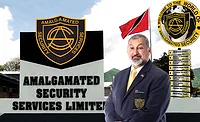Developing the Profession of Security
 Grant Lecky is the National Chair of the Canadian Security Partners’ Forum (CSPF), which is an agile network made up of 19 Forum structures all across Canada, each of which are then made up of security-related associations, educators and other professionals who have come together to promote open communication and dialogue across all security and related fields.
Grant Lecky is the National Chair of the Canadian Security Partners’ Forum (CSPF), which is an agile network made up of 19 Forum structures all across Canada, each of which are then made up of security-related associations, educators and other professionals who have come together to promote open communication and dialogue across all security and related fields.
This is a unique effort that has drawn together, in a very short time, diverse security related associations across Canada to meet and work towards common goals, most importantly, building Canadian security capacity and resilience. Lecky is also the Departmental Coordinator for Business Continuity Planning and Emergency Management at the Department of Citizenship and Immigration Canada (CIC).
How did your career begin?
I started my career as a uniformed security officer. There were parts of the job that I enjoyed, but I didn’t like the lack of training, the pay or the way we were viewed in the community. So my interest was to figure out how to elevate our occupational status towards a more professional level. As I was working on my master’s degree, I learned that there was a great need to move the Canadian private security industry towards a profession. One of the issues that came out my thesis was the fragmentation of the industry, that their best practices are not as developed as they could be and that we needed a unified body of knowledge. At the same time I noticed that some of the trade (security) associations were having trouble getting “new blood” out to their events. I felt that there was a need to create a mechanism to allow the trade associations to get a better sense of what’s around them and to unify all of those sources, not to separate themselves to preserve their own identity. Identity is important, but if we collaborate we can all benefit individually and as a whole. We need to give associations as many tools to use as possible. The Forum supports the associations, and is not competition for them. So I decided to create a body that would bring together the trade associations and ultimately, provide security executives with a holistic understanding of security and its partners. In the end, I drafted a model of the National Capital Security Partners’ Forum, and then in February 2012, as the demand increased, we created the Canadian Security Partners’ Forum. Already this year, in 2013, we are “plug-and-playing” with 106 security and related associations across Canada. At the end of the day, we call it the Canadian Security Partners’ Forum to reflect the diverse group of professionals involved. And with it we believe that security has always resisted a hard and fast definition because we are such a dynamic profession, we have a lot of partners in the industry, and we have to understand our relationships with our respective partners and understand what we do as security professionals.
How can security executives in the US benefit from this organization?
The amount of information that we get access to is just tremendous, and we think that the U.S. could build a forum similar to this. I’ve seen smaller collaborations already with ASIS and RIM, (ISC)2, ISACA and so on. The Alliance for Enterprise Security Risk Management (AESRM) was a huge source of inspiration to us, and we are taking collaborations to the next level. We are now nationwide, with 18 regional forums in all 10 provinces and all three territories. Where we are now is where I expected to be four years from now. The sky is the limit. We must continue to refine the model, and when the time is right we will reach out to American partners to see if there’s an interest in building a forum similar to this, because the benefits of cross-border collaborations are so important.
What qualities do you have that you believe make you a leader?
I start by surrounding myself with people who are wiser and more experienced and then I listen to them. There are several senior security professionals that come to mind such as Lynn Mattice, Jerry Brennan, David Hyde, Carol Osler and Mivil Deschenes. But good leadership is also about having a vision – and having the skill sets to find the right people to make your vision a reality.
What keeps you up at night?
Like any new initiative, my biggest concern would be that we’re not fulfilling our objectives – that we might “go off the rails.” The only other thing I can think of that would keep me awake at night is if I am consumed by an idea that I’d like to implement.
What do you like to do in your free time?
I am an avid and voracious reader, and I enjoy bike riding when I get the chance. I do enjoy hiking when I can. I also like to travel. I like to visit new locations, because it’s one thing to read about a new place in a book; it’s another thing to witness it when you are there.
This article was originally published in the print magazine as "The Sky is the Limit."
Looking for a reprint of this article?
From high-res PDFs to custom plaques, order your copy today!







